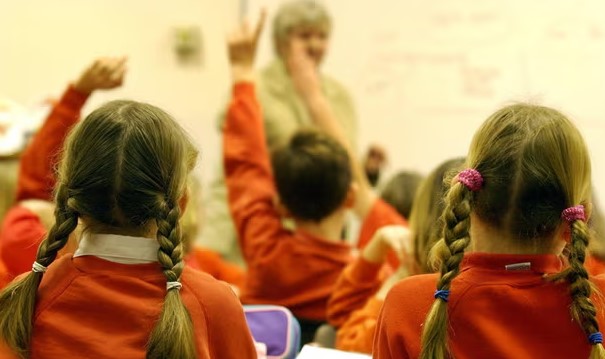One in four children starting school in England and Wales are not toilet-trained, according to teachers who now spend a third of their day supporting pupils who are not school-ready, a report has found.
The early-years charity, Kindred2, polled 1,000 primary school staff, half of whom said problems with school-readiness have got worse in the last 18 months, with schools doing more of the work to prepare children that parents would once have done.
Nearly half (46%) of pupils are unable to sit still, 38% struggle to play or share with others, more than a third (37%) cannot dress themselves, 29% cannot eat or drink independently and more than a quarter (28%) are using books incorrectly, swiping or tapping as though they were using a tablet, according to the survey.
As a consequence, school staff are on average diverting 2.5 hours a day away from teaching and towards supporting children who are not school-ready, which has a knock-on effect on pupils who lose around a third of learning time each day.
Schools say the additional pressures are also affecting staff retention. Almost half (47%) of teachers who took part in the survey said they are considering leaving their role and nearly a quarter (23%) plan on doing so in the next year.
“I feel like we’re not teaching as much in the first year now as we used to,” one teacher told researchers. “It’s more babysitting … teaching them basic skills … It’s like being the parent for them.”
The report exposes a sharp divide in parental and teacher views. A parallel poll of 1,000 parents of reception-age children found the overwhelming majority (91%) think their child was school-ready.
Only 50% of parents think they are solely responsible for toilet-training their child, while one in five parents think children do not need to be toilet-trained before starting reception.
More than two-thirds (69%) of school staff think parents need more guidance earlier about child development milestones – two out of five (43%) didn’t hear about school-readiness until their child was already four. More than one in five (22%) of parents had received no visits from a health visitor before their child started school and the majority (63%) had two visits or fewer.


